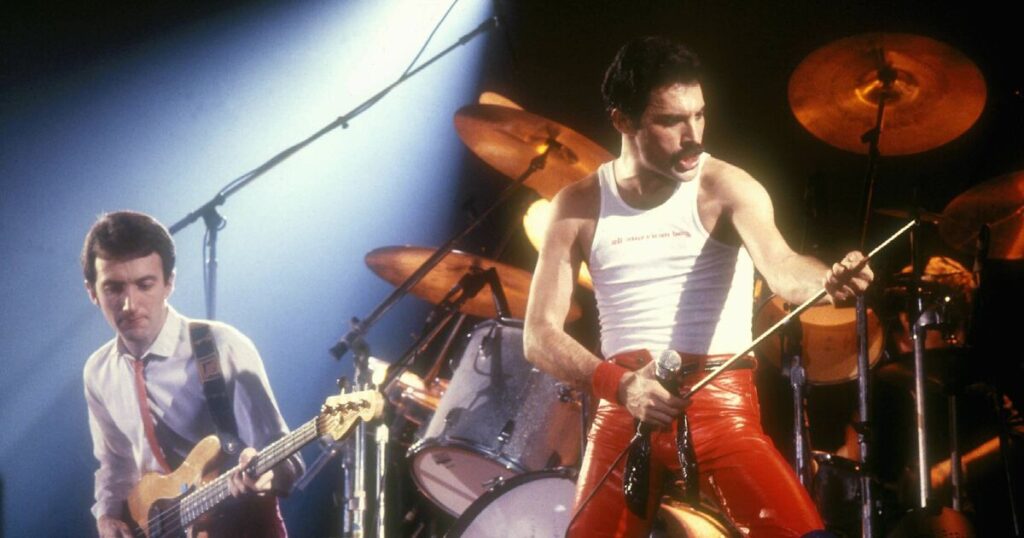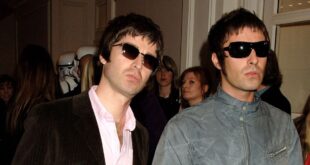
Queen’s spectacular rise to the summit of British rock was powered by Freddie Mercury’s legendary showmanship and bold artistic vision – but as bassist John Deacon admitted, that very grandiosity often sparked heated arguments behind closed doors.
In rare interview footage from the 80s, Deacon – famously the band’s quietest member – opened up about the tensions that simmered beneath Queen’s success.
“He’s very perfectionist and he always wants to do things in a big way,” Deacon said of Mercury. “He doesn’t want to do anything that would be considered small-time.”
Yet those extravagant ambitions weren’t always met with universal enthusiasm within the band. “To some of us the ideas seem a bit grandiose and over-the-top and we sometimes have to argue about these things,” Deacon revealed.
The creative process was rarely smooth, especially in Queen’s formative years. “In the early days I was very quiet because I felt I was the new boy in the band. I used to keep very out of it and the three of them used to argue like mad all the time,” he recalled with a laugh, noting how Mercury could diffuse tension by making light of their disputes.
Deacon was famously reserved, which drummer Roger Taylor once said made him a perfect fit for Queen’s otherwise outsized personalities. “We were so over-the-top, we thought that because he was quiet he would fit in with us without too much upheaval,” Taylor explained.
Still, Deacon was not immune to speaking his mind – particularly when it came to musical direction. The bassist clashed most notably with guitarist Brian May during the making of their 1982 album Hot Space.
Deacon championed a more soul and Motown-infused sound, while May preferred sticking to Queen’s rock roots. On the track ‘Back Chat’, tensions came to a head when Deacon insisted on playing the guitar solo himself rather than letting May take over.
Taylor later acknowledged in a 1984 interview with Jim Ladd that “it was really John” who pushed the band toward that more dance-oriented sound, crediting him with writing ‘Another One Bites The Dust’, which he described as “the song that catapulted us into taking that road.” He added: “I think we went too far and did too much. Everybody in the band feels that way now.”
Part of that shift in style also came from the influence of Paul Prenter, Mercury’s personal manager between 1977 and 1984. Both May and Taylor were openly critical of Prenter’s involvement, with Taylor later saying in 2011: “[Prenter] wanted our music to sound like you’d just walked in a gay club… and I didn’t.”
Producer Reinhold Mack recalled that Prenter “loathed rock music” but was in Mercury’s ear throughout the sessions, while May accused him of alienating U.S. radio stations by refusing interview requests. Roadie Peter Hince described Mercury’s loyalty to Prenter as “misguided,” noting that “none of the band cared for him, apart from Freddie.”
The Munich recording sessions for Hot Space dragged on much longer than usual, which May attributed to “drink, drugs and partying,” saying all of the band got into “deep emotional trouble” in the city.
Despite these frequent rows – sometimes loud, sometimes quietly simmering – Queen managed to channel its internal conflicts into music that broke boundaries and defined an era.
As Deacon reflected on set during one of his final interviews before Mercury’s death in 1991: “Often it is singers and guitarists who are more outspoken… but behind-the-scenes I can be as noisy as anyone else. I think we’ve all had our fair share of craziness over the years.”
The impact of those creative battles continued long after Mercury’s death in 1991. Deacon performed only a handful of times with Queen before retiring completely in 1997, leaving May and Taylor to carry on the band’s legacy. Today, Deacon leads a quiet life away from public view.
 Latest World Breaking News Online News Portal
Latest World Breaking News Online News Portal






